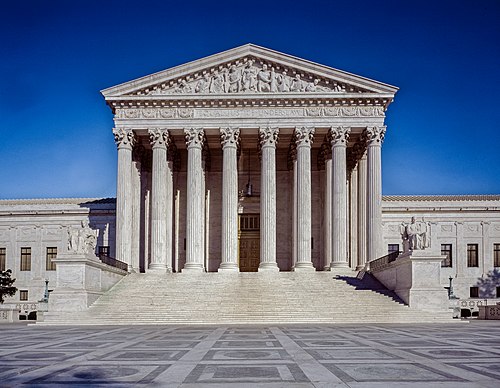Some Americans say ‘our Taliban’ are handing down fatwas from the court
Enlarge

“Our Taliban”, say some Americans, about the rulings coming down thick and fast from the US supreme court. The implication is that the decisions are like fatwas, the very word implying western dubiousness about the interpretation of Islamic law by a qualified legal scholar. In itself, there is nothing to fear from a fatwa (and the opinion is generally non-binding anyway) but I would argue that the very word “fatwa” has had a bad rap for more than 30 years.
On February 14, 1989, Salman Rushdie’s novel ‘The Satanic Verses’ became so controversial that Iran’s Supreme Leader, Ayatollah Khomeini issued a fatwa, calling on “all brave Muslims” to kill the author and his publishers.
The fatwa burst into the world’s consciousness – but in bad odour. Much of the world didn’t like what the fatwa appeared to signify, suggesting irrationality and menace in equal parts.
As a fatwa can only usually be repealed by the scholar who issued it, the fatwa against Mr Rushdie could never be taken back after the Ayatollah’s death in June 1989. In 1998, the Iranian government declared it would neither “support nor hinder” Mr Rushdie’s assassination, and private groups inside Iran and elsewhere continue to raise money to put towards the bounty on his head.
The impression of inflexibility and irrationality, vengefulness and a brooding menace persists about the fatwa.
So when some Americans talk about their supreme court’s fatwas, there is a very particular connotation. Their unease is not just about the rolling back of abortion rights. There is also the supreme court decision about the prayers offered up on the playing field by a former high school football coach in Washington state.
With the ruling that allows conspicuous displays of religiosity by government officials, the conservative-majority court appears to be taking aim at the wall that has traditionally and deliberately separated church and state. The move to allow government officials to promote a particular faith – in this case, Christianity – threaten to throw the state’s normal workings into a confusion.
But as Jim Clancy, a leading American journalist tweeted, “’Our Taliban’ try to inject their religious beliefs on everyone. This is the very reason many fled Europe to come to America in the first place.”
Also read:
https://www.rashmee.com/2022/06/28/two-men-one-idea-a-theological-dystopia/
https://www.rashmee.com/2022/06/29/the-span-of-several-centuries-separates-justice-alito-from-the-taliban-leader/

